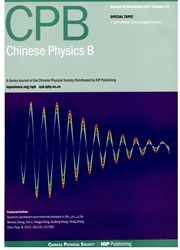

 中文摘要:
中文摘要:
A symmetric measure of quantum correlation based on the Hilbert-Schmidt distance is presented in this paper. For two-qubit states, we considerably simplify the optimization procedure so that numerical evaluation can be performed efficiently. Analytical expressions for the quantum correlation are attained for some special states. We further investigate the dynamics of quantum correlation of the system qubits in the presence of independent dissipative environments. Several nontrivial aspects are demonstrated. We find that the quantum correlation can increase even if the system state is suffering from dissipative noise. Sudden changes occur, even twice, in the time evolution of quantum correlation. There exists a certain correspondence between the evolution of quantum correlation in the systems and that in the environments, and the quantum correlation in the systems will be transferred into the environments completely and asymptotically.
 英文摘要:
英文摘要:
A symmetric measure of quantum correlation based on the Hilbert–Schmidt distance is presented in this paper. For two-qubit states, we considerably simplify the optimization procedure so that numerical evaluation can be performed efficiently. Analytical expressions for the quantum correlation are attained for some special states. We further investigate the dynamics of quantum correlation of the system qubits in the presence of independent dissipative environments. Several nontrivial aspects are demonstrated. We find that the quantum correlation can increase even if the system state is suffering from dissipative noise. Sudden changes occur, even twice, in the time evolution of quantum correlation. There exists a certain correspondence between the evolution of quantum correlation in the systems and that in the environments, and the quantum correlation in the systems will be transferred into the environments completely and asymptotically.
 同期刊论文项目
同期刊论文项目
 同项目期刊论文
同项目期刊论文
 期刊信息
期刊信息
